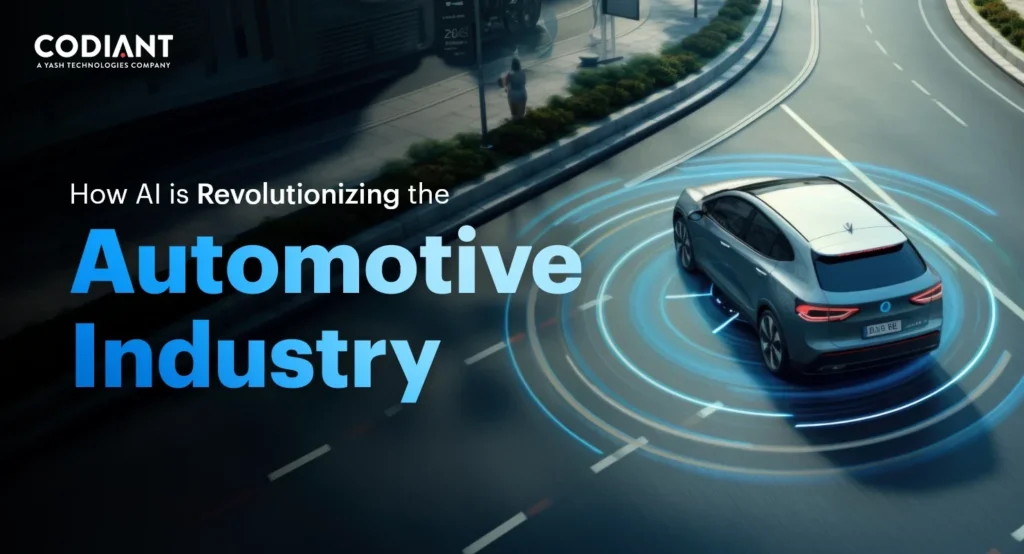How AI is Revolutionizing the Automotive Industry is a topic that has been gaining a lot of attention in recent years. Artificial intelligence (AI) has been making significant strides in the automotive industry, transforming the way vehicles are designed, manufactured, and operated. From autonomous driving technology to predictive maintenance and personalized in-car experiences, AI is reshaping the future of transportation. This technological advancement is not only improving safety and efficiency but also creating new business opportunities for automakers and tech companies. The integration of AI in the automotive sector is paving the way for a new era of mobility and redefining the driving experience.
In addition to its impact on the automotive industry, the role of artificial intelligence in reshaping the future of transportation has also garnered significant interest. The use of AI in developing advanced driver-assistance systems, enhancing vehicle connectivity, and enabling smart infrastructure is revolutionizing the way we think about transportation. The potential for AI to improve traffic management, reduce emissions, and optimize logistics is driving innovation and investment in the automotive sector. As AI continues to evolve, it will play a pivotal role in shaping the way we travel and interact with vehicles, ultimately transforming the way we experience mobility.
1. Autonomous Driving Technology
AI has played a significant role in the development of autonomous driving technology, which is revolutionizing the automotive industry. Through the use of AI algorithms, vehicles are able to perceive their environment, make decisions, and navigate without human intervention. This technology has the potential to improve road safety, reduce traffic congestion, and provide greater mobility for individuals who are unable to drive themselves.
Furthermore, the implementation of autonomous driving technology has the potential to transform the transportation industry as a whole, leading to the development of new business models and services. Companies are investing heavily in the research and development of autonomous vehicles, and it is expected that AI will continue to play a crucial role in advancing this technology in the coming years.
2. Predictive Maintenance
AI is also revolutionizing the automotive industry through the implementation of predictive maintenance systems. By analyzing data from sensors and vehicle diagnostics, AI algorithms can predict when a vehicle is likely to experience a breakdown or component failure. This allows for proactive maintenance, reducing the likelihood of unexpected and costly repairs.
Predictive maintenance not only improves vehicle reliability and safety but also leads to cost savings for both vehicle owners and fleet operators. By leveraging AI for predictive maintenance, the automotive industry is shifting from a reactive model of maintenance to a proactive and data-driven approach, ultimately improving the overall ownership experience for consumers.
3. Enhanced Driver Assistance Systems
AI has enabled the development of advanced driver assistance systems (ADAS) that enhance vehicle safety and convenience. These systems utilize AI algorithms to interpret data from sensors and cameras, allowing vehicles to automatically adjust their speed, maintain lane position, and even park without human intervention. As a result, AI-powered ADAS are reducing the likelihood of accidents and making driving more comfortable and stress-free for consumers.
Furthermore, the automotive industry is witnessing a shift towards semi-autonomous vehicles, where AI-powered ADAS can handle certain driving tasks under specific conditions. This transition is paving the way for fully autonomous vehicles in the future, with AI playing a central role in the continued development of these systems.
4. Personalized In-Car Experiences
AI is revolutionizing the automotive industry by enabling personalized in-car experiences for consumers. Through the use of AI-powered infotainment systems, vehicles can learn and adapt to the preferences of individual drivers and passengers. This includes personalized recommendations for music, navigation, and climate control settings, creating a more enjoyable and tailored driving experience.
Furthermore, AI enables voice recognition and natural language processing capabilities, allowing drivers to interact with their vehicles in a more intuitive and seamless manner. As AI continues to advance, it is expected that personalized in-car experiences will become even more sophisticated, further enhancing the overall driving and ownership experience.
5. Streamlined Manufacturing Processes
AI has had a profound impact on the manufacturing processes within the automotive industry. Through the use of AI-powered robots and automation systems, manufacturers are able to streamline production, improve efficiency, and reduce human error. AI algorithms can optimize production schedules, monitor equipment performance, and identify potential quality issues, ultimately leading to higher levels of productivity and product quality.
Furthermore, AI enables predictive analytics for supply chain management, allowing manufacturers to anticipate demand, optimize inventory levels, and minimize disruptions. The integration of AI into manufacturing processes is revolutionizing the automotive industry by creating more agile and responsive production systems.
6. Connectivity and Telematics
AI is driving the integration of advanced connectivity and telematics systems in vehicles, revolutionizing the way drivers interact with their cars and access information. Through AI-powered connectivity features, vehicles can provide real-time traffic updates, remote diagnostics, and even enable over-the-air software updates. This connectivity not only enhances the driving experience but also allows for more efficient vehicle maintenance and support services.
Furthermore, AI is enabling the development of intelligent transportation systems, where vehicles can communicate with each other and with infrastructure to improve traffic flow, reduce emissions, and enhance overall transportation efficiency. As AI continues to advance, the integration of connectivity and telematics systems will play a crucial role in shaping the future of the automotive industry.
7. Customized Vehicle Design
AI is revolutionizing the automotive industry by enabling customized vehicle design processes. Through the use of AI algorithms, manufacturers can analyze customer preferences and trends to create personalized vehicle configurations. This level of customization allows for more tailored and unique vehicle options, meeting the diverse needs and desires of consumers.
Furthermore, AI is being leveraged in the design and engineering phases to optimize vehicle performance, safety, and efficiency. This results in the development of vehicles that not only meet individual preferences but also adhere to the highest standards of quality and innovation. As AI continues to evolve, the automotive industry will see an increase in personalized and customized vehicle options for consumers.
8. Sustainable and Eco-Friendly Solutions
AI is driving the development of sustainable and eco-friendly solutions within the automotive industry. Through the use of AI-powered analytics, manufacturers can optimize vehicle designs for improved fuel efficiency, reduced emissions, and overall environmental impact. AI algorithms can also facilitate the development of electric and autonomous vehicles, which have the potential to significantly reduce greenhouse gas emissions and reliance on fossil fuels.
Furthermore, AI is enabling the implementation of smart energy management systems in vehicles, allowing for more efficient use of power and resources. As the automotive industry continues to prioritize sustainability, AI will play a crucial role in driving the development of innovative and eco-friendly solutions that benefit both consumers and the environment.
| AI Applications | Impact |
|---|---|
| Autonomous vehicles | Improving safety and efficiency on the roads |
| Smart manufacturing | Enhancing production processes and quality control |
| Predictive maintenance | Reducing downtime and maintenance costs for vehicles |
| Customer experience | Personalizing services and improving in-car entertainment |
AI is transforming the automotive industry by enabling the development of autonomous vehicles, optimizing manufacturing processes, reducing maintenance costs, and enhancing the overall customer experience.



